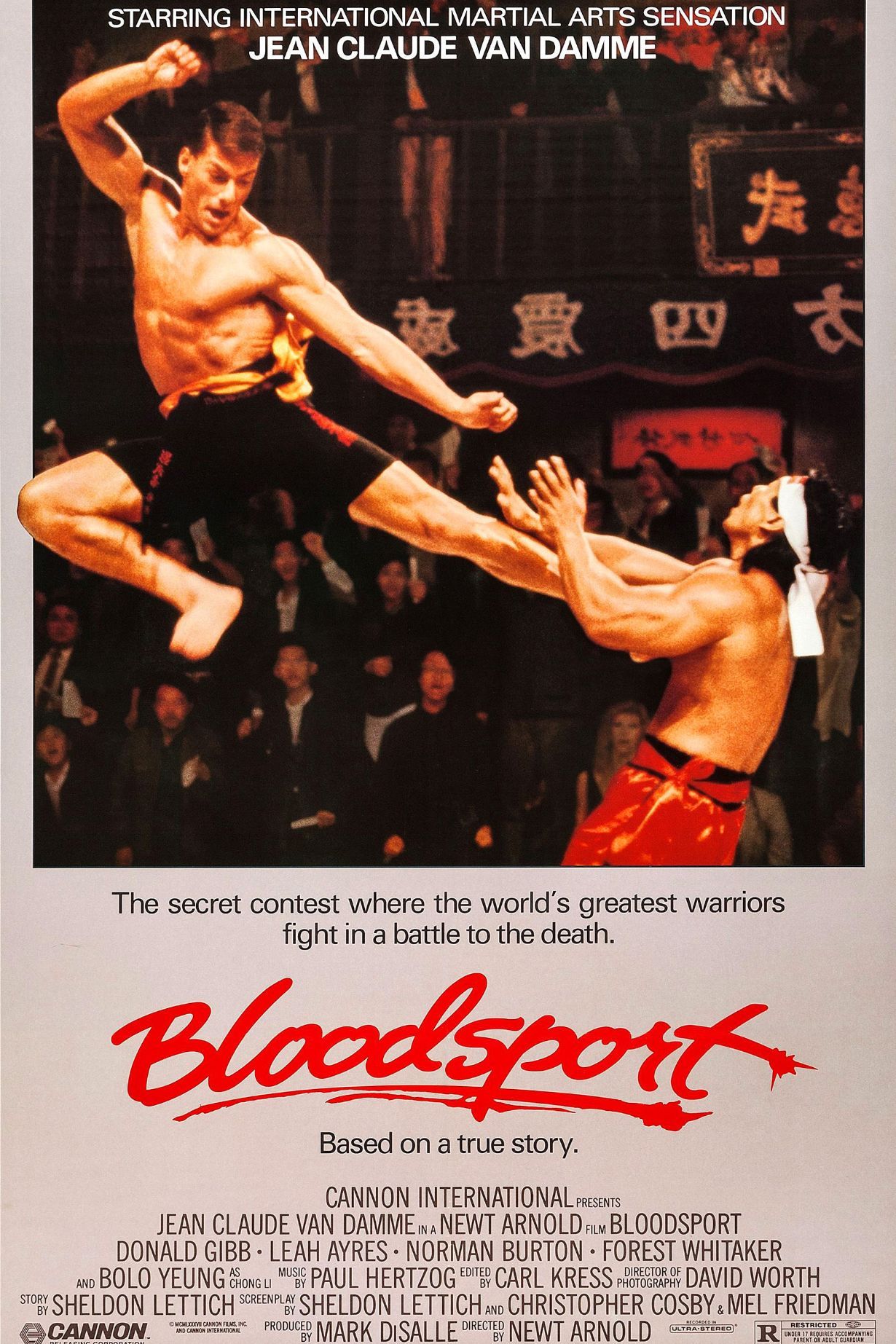Jean-Claude Van Damme may not necessarily be considered a phenomenal actor, but it's hard to find another star who shows the same level of commitment when performing exciting fight scenes. Although Van Damme doesn’t necessarily have the range that contemporaries like Bruce Willis or Arnold Schwarzenegger had, his actual experience in martial arts made him the ideal choice to star in many classic B-movies. Cult classics like Hard Target and Lionheart are praised as being among his best, but there isn’t another film within Van Damme’s filmography that is as important as Bloodsport. The simple story and blunt brutality of the 1988 martial arts film from director Newt Arnold launched a subgenre of fighting movies, and succeeded in turning Van Damme into an international star.
Although it is about as over-the-top as action movies can get, Bloodsport was actually based on the true story of Frank Lux, a United States Army Captain who was trained in ninjutsu by his mentor. In the film, Lux ventures to Hong Kong, where he attempts to compete in a violent single-elimination martial arts competition that is held in secrecy. Lux served as a fight choreographer on the film, and subsequently worked on several other Van Damme films, including Lionheart, Only the Strong, and The Quest. However, a closer look at Lux’s story reveals that he may not have been as truthful as the film’s marketing department initially claimed.
Who Was Frank Lux?
 Image via Netflix
Image via Netflix
The story of Bloodsport was created by screenwriter Sheldon Lettich, who claimed that he had met Lux several months before the film went into production. Although Lettich admitted that Lux seemed to enjoy telling “tall tales,” he found himself intrigued by the concept of the Kumite, which was described as an underdog fighting competition in Hong Kong that was held in secret. Lux claimed to have engaged in the Kumite competition in the 1970s, which was covered in an issue of Black Belt magazine by the writer John Stewart. Lux alleged that the competition was held only once every five years, and he was the first former participant who spoke about it publicly. Although he was operating his own martial arts academy in Los Angeles at the time, Lux became involved creatively in Bloodsport after Lettich said that the Kumite event sounded like a great idea for a movie.
Although Bloodsport was marketed as being based on a true story, many of Lux’s acquaintances have since spoken out against his claims. An exposé in the Los Angeles Times published right before Bloodsport’s release reported that nearly all of Lux’s statements in the original Black Belt article were fabricated. The journalist John Johnson found that a spokesman for the Ministry of Sports denied that the Kumite was ever held in the Bahamas, and that the trophy photographed in the original article was made in a shop in the San Fernando Valley that was close to where Lux was living at the time of its publication. Lettich later admitted that much of the screenplay was based on personal accounts from one of Lux’s friends, who later admitted that he “had coached him in what to say.” According to Johnson, Lux may have made up these stories in order to promote his ongoing martial arts academy.
Why Was ‘Bloodsport’ So Controversial?
The accuracy of Bloodsport wasn’t the only controversial thing about Lux, as he came under fire for other statements that he made about his service in the military. Details attained through the Freedom of Information Act revealed that Lux had never actually served overseas, and did not earn the Medal of Honor as he had claimed. In the 2009 book Stolen Valor, the retired military consultant B. G. Burkett stated that he had never served in Vietnam, as Lux had only enlisted in the service after the conclusion of the war. It was also revealed that Senzo "Tiger" Tanaka, the instructor that had allegedly taught Lux martial arts, could not be verified to have ever existed.
Lux’s fighting record has also been disputed, as the Inside Kung Fu editor Curtis Wong revealed that the possibility of 56 consecutive knockouts was not remotely possible. Although Lux also claimed in his autobiography The Secret Man that he had been an undercover operative for the American government, a spokesperson for the CIA stated that this was a complete fabrication. The novel included a photo with the former SEAL Team 5 commander, Larry Simmons, who had the same itinerary agent as Dux; however, Simmons later denied that the two were ever friendly, and referred to Lux as a “con man.”
What Is the Legacy of ‘Bloodsport?'
Although Lux’s stories have been proven to be completely fabricated, Bloodsport remains a highly entertaining film because it has very little semblance of realism. It certainly was not the only Hollywood film that claimed to be based on a true story, but was actually highly inaccurate; The Greatest Showman was a global smash hit that had almost nothing to do with the real P.T. Barnum, and Braveheart managed to win the Academy Award for Best Picture, despite the many liberties that Mel Gibson took with the story of the Scottish revolutionary leader William Wallace. The only real mistake was ever claiming that Bloodsport was accurate, but that is an error that falls upon the marketing department, and not the filmmakers.
Bloodsport was the perfect use of Van Damme, as it was able to take advantage of his natural abilities in combat to create a thrilling sports film. Although Van Damme would later begin appearing in more science fiction films like Universal Soldier and Cyborg, his most successful projects tended to be those with some semblance of actual choreography. It was clear Van Damme was essential to Bloodsport, and not Lux; the multiple direct-to-DVD sequels that were made without Van Damme were not successful in the slightest.

Your changes have been saved
Jean-Claude Van Damme stars in the martial arts movie Bloodsport as a fictional version of the real-life Frank Dux, a U.S. Army officer who participated in a secret underground martial arts tournament in Hong Kong. Directed by Newt Arnold, the 1988 action film helped establish Van Damme as a Hollywood star.
Release Date February 26, 1988
Director Newt Arnold
Runtime 92minutes
Bloodsport is streaming on MGM+ in the U.S.









 English (US) ·
English (US) ·